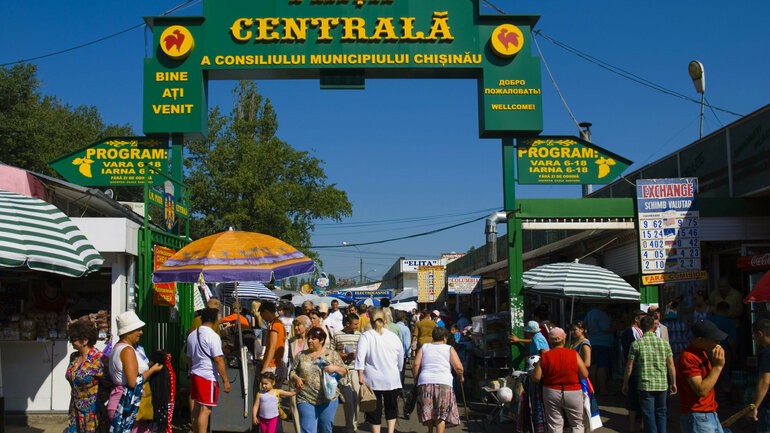Adaptation Strategies of Small Entrepreneurs in the Context of Moldova’s Economic Integration with the EU: Insights from Piața Centrală in Chișinău
Adaptation Strategies of Small Entrepreneurs in the Context of Moldova’s Economic Integration with the EU: Insights from Piața Centrală in Chișinău

This project is part of the joint project Living with Uncertainty. Strategies of Adaptation and Horizons of Expectations in Ukraine and Moldova (LimSpaces).
Project description
Individual trade as part of large wholesale and consumer markets currently faces major challenges, the effects of which are investigated within the project framework. Russia’s war against Ukraine and economic and political instability in Moldova are among the factors which put a question mark over the anticipated positive effects of the Association Agreement (AA) with the EU and the Deep and Comprehensive Free Trade Area (DCFTA). Other challenges are the high short- and medium-term costs of implementing and aligning with EU standards, and the associated social impacts. In the medium term, this may lead to the closure of markets or individual traders’ businesses, a scenario which is familiar from other Eastern European countries following EU integration and is associated with loss of jobs and access to social security systems.
There is a considerable body of research on the emergence and significance of markets in the transition period in the post-Soviet region, with a focus on their specific function in the urban space, local and transnational linkages, and social networks and their existence in the grey zone of formal and informal activities. Building on this scholarship, we investigate how traders and markets respond to the changing conditions arising from agreements such as the AA and DCFTA, how they deal with the economic and social effects, and the extent to which they are able to actively shape these processes. We analyse Piața Centrală, a large traditional market in Chișinău (Republic of Moldova) with a highly diverse profile and accommodating both consumer and wholesale trade.
Methodology
- Interviews with traders, service providers (transport, purchasing, sales, catering, cleaning, etc.), market management and administrations, local authorities and customers
- Analysis of available statistics, reports and documents on market trends, turnover, workforce, strategies, challenges and conflicts
- Expert discussions with local and national bodies (chambers of commerce, etc.)
Key questions
- How are traders adapting to the new requirements arising from alignment with EU standards within the DCFTA and AA frameworks?
- What role does EU trade liberalisation play in relation to market trading?
- How does adaptation to international rules affect economic and social interdependencies in the market context?
![[Translate to Englisch:]](/fileadmin/media/_processed_/7/6/csm_Julia_Langbein__Annette_Riedl__34b85e2bd3.jpg
)
![[Translate to Englisch:]](/fileadmin/media/_processed_/3/2/csm_Loewis__Annette_Riedl__d15ffb8229.jpg
)